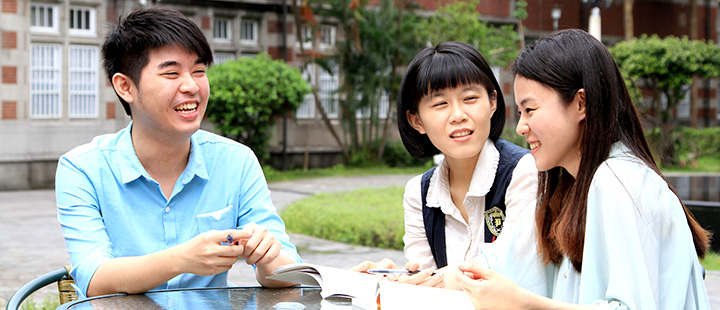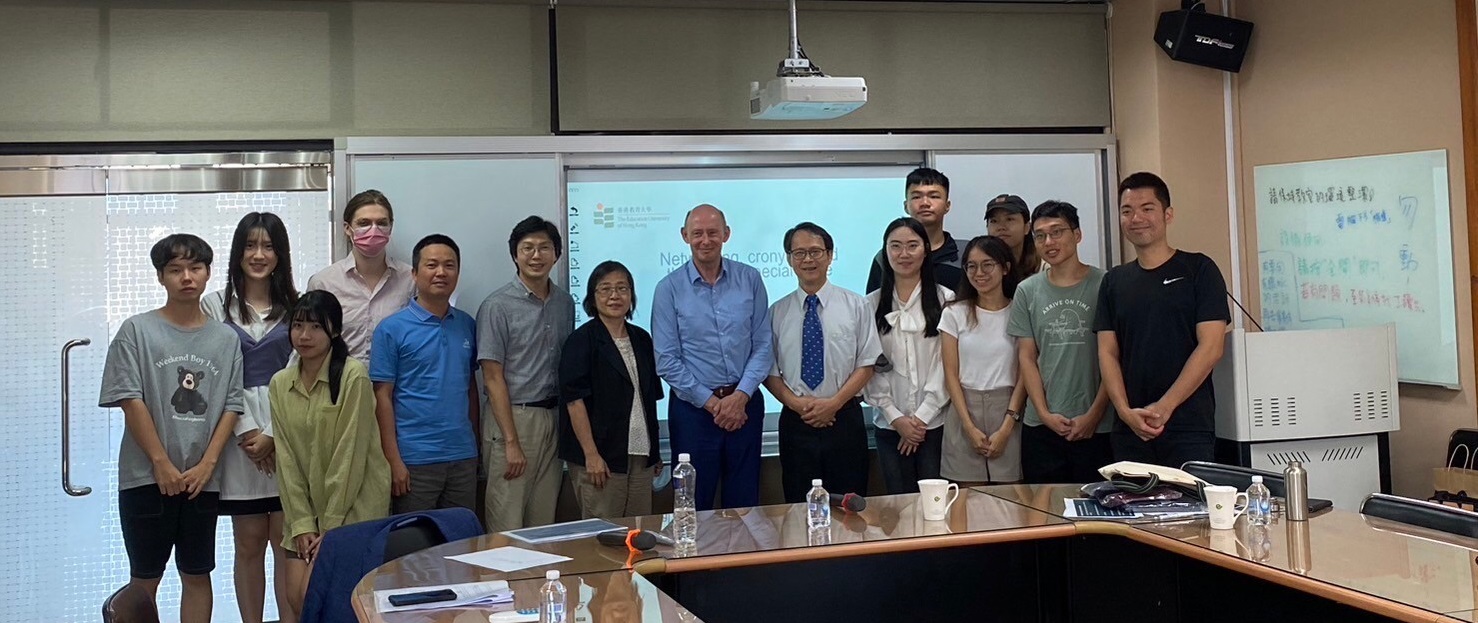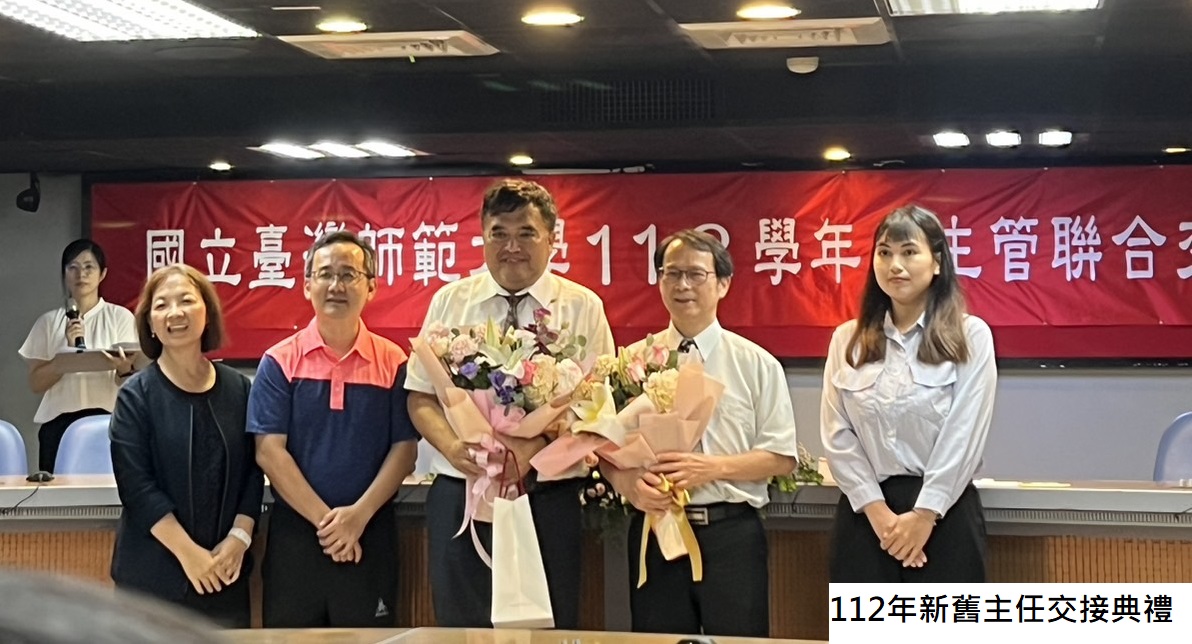| 2024 |
2024 |
| 2023 |
2023 |
| 2022 |
2022 |
| 2022 |
2022 |
| 2021 |
2021 |
| 2021 |
2021 |
| 2020 |
王力億 (2020)。 雙語教育的師資先決與師培改革。台灣教育評論月刊,9 (10),31-36。, Oct. 2020 |
| 2020 |
Hsieh, K. T., & Wang L. Y. (2020). Three Taiwanese Students’ Identity Transformations: Complexity Within a Cohort of International Students. Journal of College Student Development, 61(5), 624-636. (SSCI), Sep. 2020 |
| 2020 |
Lee, W. C., Wang, L. Y., & Chen, D. T. (2020). A qualitative inquiry into the relationships between teacher efficacy beliefs and teaching task analysis in the context of learner-centred pedagogy. Australian Educational Researcher, 47 (4), 611-628. (SSCI), Sep. 2020 |
| 2019 |
Wang, L. Y., Chen, D. T., & Neo, W. L. (2019). Studying the enactment of school-based curriculum development (SBCD) in Singapore. Educational Research, 61 (3), 337-355. (SSCI), Jul. 2019 |
| 2019 |
Wang, L. Y. (2019). Levelling up academically low-performing students in student-centric education in Singapore: Global trend, local policies and future directions. Educational Review, DOI: 10.1080/00131911.2019.1642304 (SSCI), Jul. 2019 |
| 2019 |
Wang, L. Y. (2019). Buy-in or no buy-in? Teachers’ perceptions of a school-based teacher learning approach in Singapore. International Journal of Educational Research, 95, 52-59. (SSCI), May. 2019 |
| 2018 |
Lin, T. B., Wang, L. Y., & Wang, M. Y. (2018). Diverse interpretations on nativeness but unanimous subscription to native-speakerism: Identity of future non-native English teachers in Taiwan. The Journal of Asia TEFL, 15 (3), 603-617. (Scopus). (Corresponding Author), Sep. 2018 |
| 2017 |
Lee, W. C., Chen, D. T., & Wang, L. Y. (2017). A review of research on teacher efficacy beliefs in the learner-centred pedagogy context: Themes, trends and issues. Asia Pacific Education Review, 18 (4), 559-572. (SSCI)., Dec. 2017 |
| 2017 |
Wang, L. Y., Li, J. Y., Tang, L. S., & Lee, L. (2017). Contextualizing teacher efficacy in a high-performing system: A research agenda. British Journal of Educational Studies, 65 (3), 385-403. (SSCI), Sep. 2017 |
| 2017 |
Wang, L. Y., Tan, L. S., Li, J. Y., Tan, I., & Lim, X. F. (2017). A qualitative inquiry on sources of teacher efficacy in teaching low-achieving students. The Journal of Educational Research, 110 (2), 140-150. (SSCI), Apr. 2017 |
| 2017 |
Hairon, S., Goh, W. P., Chua, S. K., & Wang, L. Y. (2017). A research agenda for PLCs: Moving forward. Professional Development in Education, 43 (1), 72-86. (SSCI), Jan. 2017 |
| 2016 |
Wang, L. Y., Li, J. Y., Tan, L. S., Tan, I., & Lim, X. F. & Wu, B. S. (2016). Unpacking high and low efficacy teachers’ task analysis and competence assessment in teaching low-achieving students in secondary schools. Australian Educational Researcher, 43 (2), 165-183. (SSCI), Apr. 2016 |
| 2015 |
Lin, T. B., Mokhtar, I., & Wang, L. Y. (2015). The construct of media and information literacy in Singapore education system: Global trends and local policies. Asia Pacific Journal of Education, 35 (4), 423-437. (SSCI), Oct. 2015 |
| 2015 |
Chen, D. T., Wang, L. Y., & Neo, W. L. (2015). School-based curriculum development towards a culture of learning: Nonlinearity in Practice. British Journal of Educational Studies, 63 (2), 213-228. (SSCI), Apr. 2015 |
| 2014 |
Lin, T. B., Wang, L. Y., Li, J. Y., Chang, C. M. (2014). Pursuing quality education: The lessons from the education reform in Taiwan. The Asia-Pacific Education Researcher, 23 (4), 813-822. (SSCI), Oct. 2014 |
| 2014 |
Wang, L. Y., & Lin, T. B. (2014). Exploring the identity of pre-service NNESTs in Taiwan: A social relationally approach. English Teaching: Practice and Critique, 13 (3), 5-29. (SSCI), Jul. 2014 |
| 2013 |
Wang, L. Y., & Lin, T. B. (2013). The representation of professionalism in native English speaking teachers recruitment policies: A comparative study of Hong Kong, Japan, Korea and Taiwan. English Teaching: Practice and Critique, 12 (3), 5-22. (SSCI), Jul. 2013 |
| 2013 |
Hsieh, K. T., Dong, D. H., & Wang, L. Y. (2013). A preliminary study of applying shadowing technique to English intonation instruction. Taiwan Journal of Linguistics, 11 (2), 43-66. (THCI Core), Apr. 2013 |
| 2013 |
Wang, L. Y. (2013). Non-native EFL teacher trainees’ attitude towards the recruitment of NESTs and teacher collaboration in language classrooms. Journal of Language Teaching and Research, 4 (1), 12-20., Jan. 2013 |
| 2012 |
Wang, L. Y. (2012). Moving towards the transition: Non-native EFL teachers’ perception of native-speaker norms and responses to varieties of English in the era of global spread of English. The Asian EFL Journal, 14 (2), 46-78. (Scopus), Apr. 2012 |
| 2012 |
Wang, L. Y. (2012). Preparing NESTs and NNESTs for team teaching at the pre-service level. Studies in Literature and Language, 4 (1), 32-37., Jan. 2012 |
| 2011 |
Wang, L. Y. (2011). Taiwanese pre-service English teachers’ attitude towards native-English-speaking-teachers and native-and nonnative-English-speaking-teacher team teaching. English Teaching and Learning, 35 (2), 1-44. (THCI Core), Apr. 2011 |
| 2011 |
Li, J. Y., & Wang, L. Y. (2011). Integrated bilingual special education. Journal of Reading and Literacy, 3, 43-51., Jan. 2011 |






